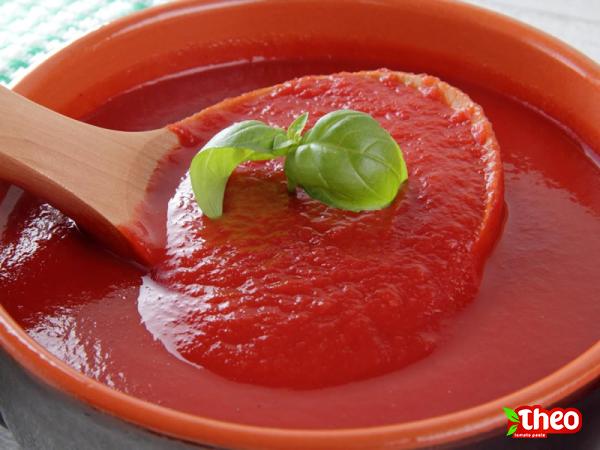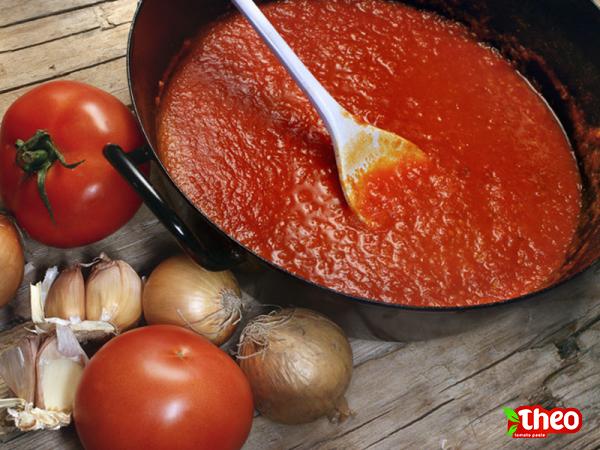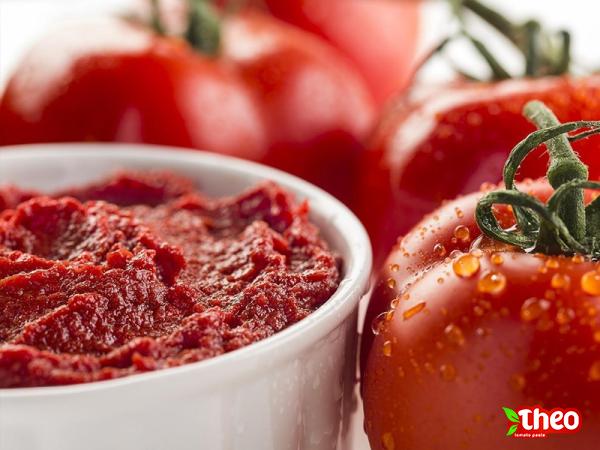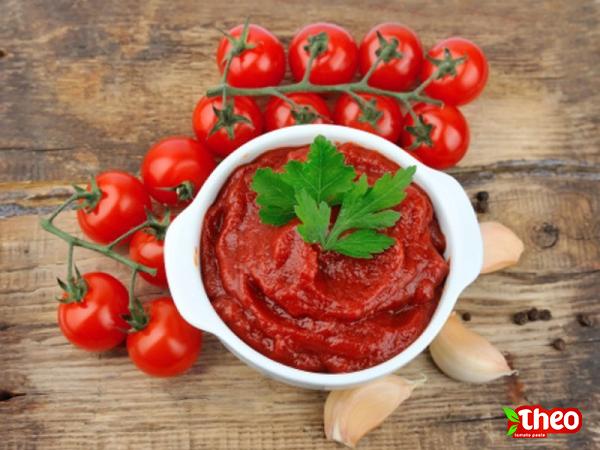Tomato Paste Industry in Italy: A Rich Tradition and Global Excellence Introduction: Tomato paste holds a significant place in Italian cuisine, which is revered for its authentic flavors and culinary excellence. Italy, known for its world-class tomatoes, has long been recognized as a leading producer of tomato paste. This article dives into the rich tradition and global excellence of tomato paste production in Italy. We explore the history, cultivation, production process, market trends, and the factors that have contributed to Italy’s prominence in the tomato paste industry. 1. Historical Background: Tomato cultivation in Italy dates back to the 16th century when tomatoes first arrived in Europe from the Americas. Initially, tomatoes were seen as ornamental plants, and it took time for them to become an integral part of Italian cuisine. However, over the centuries, tomatoes gained popularity and became a staple in Italian households. With the increasing demand for tomato-based products, including tomato paste, Italy solidified its position as a regional and global leader in tomato production. 2. Tomato Cultivation in Italy: Italy’s tomato industry is built on the foundation of rich, fertile soil, favorable climate conditions, and a long-standing tradition of cultivating high-quality tomatoes. The country’s diverse geographical regions, including the fertile plains of Campania and the sunny southern coasts, provide ideal conditions for tomato cultivation. Varieties such as San Marzano, Pomodorino del Piennolo, and Pachino are just a few examples of the tomatoes that thrive in these areas. 3. Tomato Paste Production Process: Tomato paste is created by reducing tomatoes through a meticulous process that involves harvesting, sorting, washing, peeling, and cooking. The process begins with selecting ripe tomatoes, which are then cleaned and sorted to remove any impurities. After peeling, the tomatoes are crushed into a puree, which is then cooked under controlled conditions to remove excess water. The resulting concentrated tomato paste is packed and sealed to preserve its freshness and flavor. 4. Quality Standards and Regulations: Italy places a strong emphasis on product quality and safety. The tomato paste industry adheres to strict regulations, ensuring that the final products meet the highest standards. The Denominazione di Origine Protetta (DOP) and Indicazione Geografica Protetta (IGP) are two designations that guarantee the authenticity and quality of Italian tomato products.

tomato paste
 5. Market Trends and Global Demand: The global market for tomato paste continues to expand, with Italy playing a significant role. Italy is not only a key producer but also one of the largest exporters of tomato paste, catering to both European and international markets. The demand for Italian tomato paste is driven by its exceptional quality, authentic taste, and the reputation the industry has built over time. The versatility of tomato paste in various cuisines, including Italian, Mediterranean, and global dishes, has contributed to its increasing popularity. 6. Competitive Landscape: Italian tomato paste manufacturers face significant competition both domestically and internationally. However, the centuries-old tradition, regional specialties, and adherence to strict production standards give Italian tomato paste a competitive edge. Collaboration between producers, research institutions, and government bodies ensures ongoing innovation and continuous improvement to meet changing consumer preferences. 7. Economic Impact: The tomato paste industry plays a crucial role in Italy’s economy, supporting rural communities and driving employment opportunities. The sector provides income to thousands of farmers, processors, and distributors throughout the country. As a result, the industry contributes to the overall economic growth and stability of Italy. 8. Future Outlook and Sustainability: To maintain its position as a global leader in tomato paste production, Italy focuses on sustainable farming practices and investing in research and development. The industry aims to reduce its environmental impact by implementing efficient water and energy management systems, as well as adopting organic and eco-friendly alternatives. Furthermore, diversifying tomato-based products and exploring new markets are vital strategies for sustaining growth in the future.
5. Market Trends and Global Demand: The global market for tomato paste continues to expand, with Italy playing a significant role. Italy is not only a key producer but also one of the largest exporters of tomato paste, catering to both European and international markets. The demand for Italian tomato paste is driven by its exceptional quality, authentic taste, and the reputation the industry has built over time. The versatility of tomato paste in various cuisines, including Italian, Mediterranean, and global dishes, has contributed to its increasing popularity. 6. Competitive Landscape: Italian tomato paste manufacturers face significant competition both domestically and internationally. However, the centuries-old tradition, regional specialties, and adherence to strict production standards give Italian tomato paste a competitive edge. Collaboration between producers, research institutions, and government bodies ensures ongoing innovation and continuous improvement to meet changing consumer preferences. 7. Economic Impact: The tomato paste industry plays a crucial role in Italy’s economy, supporting rural communities and driving employment opportunities. The sector provides income to thousands of farmers, processors, and distributors throughout the country. As a result, the industry contributes to the overall economic growth and stability of Italy. 8. Future Outlook and Sustainability: To maintain its position as a global leader in tomato paste production, Italy focuses on sustainable farming practices and investing in research and development. The industry aims to reduce its environmental impact by implementing efficient water and energy management systems, as well as adopting organic and eco-friendly alternatives. Furthermore, diversifying tomato-based products and exploring new markets are vital strategies for sustaining growth in the future.
Specifications of tomato paste
 Conclusion: Italy’s tomato paste industry stands tall as a testament to the country’s passion for culinary excellence. With a rich history, adherence to quality standards, and a commitment to innovation, Italy has established itself as a dominant player in the global tomato paste market. Through its tradition, cultivation techniques, and dedication to quality, Italy continues to contribute to the world’s love affair with the vibrant flavors and versatility of tomato paste.1. Italian Tomato Paste: A Branding Success Story Italy’s tomato paste industry has achieved remarkable success through its effective branding strategies. The Italian “brand” has become synonymous with authenticity, quality, and the rich culinary traditions of the country. The industry has capitalized on this reputation by leveraging its heritage and promoting the unique flavors of Italian tomatoes. This branding success has helped Italian tomato paste gain global recognition and market share. 2. Sustainable Farming Practices in Italian Tomato Paste Production Sustainability is a key focus for the Italian tomato paste industry. Producers are implementing sustainable farming practices to minimize their environmental impact and ensure the long-term viability of tomato cultivation. This includes the use of organic fertilizers, crop rotation, and integrated pest management. By prioritizing sustainable practices, the industry aims to meet the growing consumer demand for environmentally friendly and ethically produced products. 3. Diversification and Value-added Products In addition to traditional tomato paste, Italian producers are expanding their product offerings to meet changing consumer preferences. This entails creating value-added products such as flavored tomato pastes, organic options, and products tailored to specific dietary needs (e.g., gluten-free or low sodium). By diversifying their range, Italian producers can cater to a broader customer base and capitalize on niche markets. 4. Technological Advancements in Tomato Paste Production The Italian tomato paste industry embraces technological advancements to enhance productivity and quality. Innovations such as automated sorting and packaging systems, advanced processing techniques, and state-of-the-art storage facilities have improved efficiency and reduced waste throughout the production process. These technological advancements have contributed to the industry’s competitiveness on a global scale. 5. Export Opportunities and International Market Reach Italian tomato paste has gained a strong foothold in international markets. The rich flavors, quality assurance, and adherence to strict standards have made it a sought-after product worldwide. Italy’s long history in the industry and its reputation for producing superior tomato paste have enabled it to establish trade partnerships and expand its export opportunities. Key markets for Italian tomato paste include the United States, Germany, France, and the United Kingdom.
Conclusion: Italy’s tomato paste industry stands tall as a testament to the country’s passion for culinary excellence. With a rich history, adherence to quality standards, and a commitment to innovation, Italy has established itself as a dominant player in the global tomato paste market. Through its tradition, cultivation techniques, and dedication to quality, Italy continues to contribute to the world’s love affair with the vibrant flavors and versatility of tomato paste.1. Italian Tomato Paste: A Branding Success Story Italy’s tomato paste industry has achieved remarkable success through its effective branding strategies. The Italian “brand” has become synonymous with authenticity, quality, and the rich culinary traditions of the country. The industry has capitalized on this reputation by leveraging its heritage and promoting the unique flavors of Italian tomatoes. This branding success has helped Italian tomato paste gain global recognition and market share. 2. Sustainable Farming Practices in Italian Tomato Paste Production Sustainability is a key focus for the Italian tomato paste industry. Producers are implementing sustainable farming practices to minimize their environmental impact and ensure the long-term viability of tomato cultivation. This includes the use of organic fertilizers, crop rotation, and integrated pest management. By prioritizing sustainable practices, the industry aims to meet the growing consumer demand for environmentally friendly and ethically produced products. 3. Diversification and Value-added Products In addition to traditional tomato paste, Italian producers are expanding their product offerings to meet changing consumer preferences. This entails creating value-added products such as flavored tomato pastes, organic options, and products tailored to specific dietary needs (e.g., gluten-free or low sodium). By diversifying their range, Italian producers can cater to a broader customer base and capitalize on niche markets. 4. Technological Advancements in Tomato Paste Production The Italian tomato paste industry embraces technological advancements to enhance productivity and quality. Innovations such as automated sorting and packaging systems, advanced processing techniques, and state-of-the-art storage facilities have improved efficiency and reduced waste throughout the production process. These technological advancements have contributed to the industry’s competitiveness on a global scale. 5. Export Opportunities and International Market Reach Italian tomato paste has gained a strong foothold in international markets. The rich flavors, quality assurance, and adherence to strict standards have made it a sought-after product worldwide. Italy’s long history in the industry and its reputation for producing superior tomato paste have enabled it to establish trade partnerships and expand its export opportunities. Key markets for Italian tomato paste include the United States, Germany, France, and the United Kingdom.
buy tomato paste
 6. Collaborations and Partnerships with International Players Italian tomato paste producers have recognized the value of collaborations and partnerships with international players. These alliances allow for knowledge exchange, access to new markets, and shared resources. By working together, manufacturers can enhance their production capabilities, expand distribution networks, and stay at the forefront of industry trends. 7. Research and Development for Product Innovation To stay competitive in a dynamic market, the Italian tomato paste industry invests in research and development. This includes efforts to improve the taste, texture, and nutritional content of tomato paste. Research institutions collaborate with producers to explore new processing techniques, develop new varieties of tomatoes, and discover innovative applications for tomato-based products. By prioritizing research and development, the industry can continuously evolve and meet the ever-changing demands of consumers. 8. Food Safety and Quality Control Measures Italy’s tomato paste industry places a strong emphasis on food safety and quality control measures. Stringent regulations, regular inspections, and certification programs ensure that every stage of the production process meets the highest standards. Beyond meeting regulatory requirements, producers also implement their own rigorous quality control measures to guarantee the integrity, taste, and nutritional value of their tomato paste products. 9. Opportunities for Small-scale Farmers and Producers The tomato paste industry provides opportunities for small-scale farmers and producers to participate in the value chain. While larger companies dominate the market, the industry’s fragmented nature allows smaller players to thrive. Cooperative models and collaborative networks enable small-scale farmers to pool their resources, share knowledge, and access markets that they may not have been able to reach individually. This inclusivity supports the local economy, preserves traditional farming practices, and promotes rural development. 10. Challenges and Future Outlook Despite its successes, the Italian tomato paste industry faces challenges. Changing weather patterns, pests and diseases, and increased competition from other countries are potential threats to production. Additionally, consumer preferences and dietary trends may shift, requiring continuous adaptation and innovation. However, the industry’s commitment to quality, sustainability, and tradition positions it well for future growth and success. Conclusion: The tomato paste industry in Italy is a testament to the country’s passion, tradition, and innovation. Italy’s rich culinary heritage, favorable climate conditions, and sustainable farming practices have made it a global leader in tomato paste production. Through branding, diversification, technological advancements, and international collaborations, Italian producers have capitalized on their reputation for quality and authenticity. The industry’s commitment to research and development, food safety, and inclusivity ensures its future viability in the ever-evolving global market. Italian tomato paste continues to delight taste buds around the world, solidifying its position as a true culinary gem.
6. Collaborations and Partnerships with International Players Italian tomato paste producers have recognized the value of collaborations and partnerships with international players. These alliances allow for knowledge exchange, access to new markets, and shared resources. By working together, manufacturers can enhance their production capabilities, expand distribution networks, and stay at the forefront of industry trends. 7. Research and Development for Product Innovation To stay competitive in a dynamic market, the Italian tomato paste industry invests in research and development. This includes efforts to improve the taste, texture, and nutritional content of tomato paste. Research institutions collaborate with producers to explore new processing techniques, develop new varieties of tomatoes, and discover innovative applications for tomato-based products. By prioritizing research and development, the industry can continuously evolve and meet the ever-changing demands of consumers. 8. Food Safety and Quality Control Measures Italy’s tomato paste industry places a strong emphasis on food safety and quality control measures. Stringent regulations, regular inspections, and certification programs ensure that every stage of the production process meets the highest standards. Beyond meeting regulatory requirements, producers also implement their own rigorous quality control measures to guarantee the integrity, taste, and nutritional value of their tomato paste products. 9. Opportunities for Small-scale Farmers and Producers The tomato paste industry provides opportunities for small-scale farmers and producers to participate in the value chain. While larger companies dominate the market, the industry’s fragmented nature allows smaller players to thrive. Cooperative models and collaborative networks enable small-scale farmers to pool their resources, share knowledge, and access markets that they may not have been able to reach individually. This inclusivity supports the local economy, preserves traditional farming practices, and promotes rural development. 10. Challenges and Future Outlook Despite its successes, the Italian tomato paste industry faces challenges. Changing weather patterns, pests and diseases, and increased competition from other countries are potential threats to production. Additionally, consumer preferences and dietary trends may shift, requiring continuous adaptation and innovation. However, the industry’s commitment to quality, sustainability, and tradition positions it well for future growth and success. Conclusion: The tomato paste industry in Italy is a testament to the country’s passion, tradition, and innovation. Italy’s rich culinary heritage, favorable climate conditions, and sustainable farming practices have made it a global leader in tomato paste production. Through branding, diversification, technological advancements, and international collaborations, Italian producers have capitalized on their reputation for quality and authenticity. The industry’s commitment to research and development, food safety, and inclusivity ensures its future viability in the ever-evolving global market. Italian tomato paste continues to delight taste buds around the world, solidifying its position as a true culinary gem.




